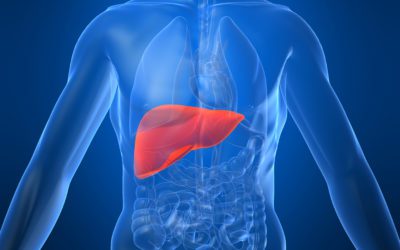News
Large multi-country study confirms J-shaped association between alcohol and mortality
In comparison with lifetime abstainers, drinking less than one drink a day is associated with a reduced risk of dying due to any cause. But more than two drinks a day is associated with an increased risk of total, cardiovascular and especially cancer mortality. These are the outcomes of a large multi-country study that was recently published. This study confirms previous findings that alcohol has a J-shaped relation with mortality.
Effect of alcohol on bladder cancer: differences in gender and types of drink
The evidence regarding the effect of alcohol on bladder cancer is still inconclusive. But a new meta-analysis tries to shed light on the matter. It finds no effect of alcohol consumption on the risk of bladder cancer in the general population, but it does find an increased risk of heavy alcohol consumption on the risk in males, and an increased risk with drinking spirits. More research is needed.
Call for papers – Publication Award of €1,000
For the second time in a row, the Beer and Health Initiative offers a Publication Award of €1,000 for the best, most remarkable publication of the year focusing on moderate beer (or alcohol) consumption. Deadline of application is 31 March 2022.
Does alcohol, and beer in particular, influence the risk of Parkinson’s disease? A meta-analysis
A new meta-analysis finds a decreased risk of Parkinson’s disease with alcohol consumption. The lowest risk is present for people drinking 2,5 to 3,5 drinks a day. Interestingly, only beer is significantly associated with a lower risk, not wine and spirits. Whether the relation is causal is still unclear.
What is the effect of alcohol on erectile disfunction? A meta-analysis
Can alcohol consumption influence erectile disfunction in men? The answer is more complicated than a simple yes or no. Drinking large amounts of alcohol can make it hard to get or keep an erection in that moment. But a recent meta-analysis finds that moderate alcohol consumption is associated with a lower risk of erectile disfunction.
Can patients with cardiovascular disease still drink? A meta-analysis
Moderate alcohol consumption is associated with a lower risk of developing cardiovascular disease. But what if you already have cardiovascular disease? A recent meta-analysis still finds a decreased risk of mortality and cardiovascular events for those drinking moderately compared to current non-drinkers. Up to 10 drinks a week might have protective effects and there is no elevated risk with heavy alcohol consumption.
Alcohol consumption related to eye problems: a meta-analysis
Age-related macular degeneration is a chronic disease of the eyes, and is the leading cause of severe visual loss in adults over the age of 50. A recent meta-analysis finds that moderate and heavy alcohol consumption are associated with the risk to develop early age-related macular degeneration. Late age-related macular degeneration, on the other hand, is not associated with any amount of alcohol.
Should non-alcoholic fatty liver disease patients stop drinking?
Recently, two meta-analyses looked into the effect of moderate alcohol consumption in patients with non-alcoholic fatty liver disease (the most prevalent chronic liver disorder). Both studies find a decreased risk of advanced liver fibroses in patients who drink in moderation. The advice from the researchers: patients with steatohepatitis or advanced fibrosis should avoid alcohol, but patients with low fibrosis risk may be allowed to drink moderate amounts of alcohol.
No conclusion can be drawn yet from Mendelian Randomization in alcohol research
For the first time, a study reviews all mendelian randomization studies on alcohol consumption and cardiovascular disease, diabetes and mortality. The authors conclude that due to a lack of consistency in methodology and results, it is not yet possible to draw conclusions on the causal role of moderate alcohol consumption on cardiometabolic health.
Heavy alcohol consumption decreases flow-mediated dilation: a systematic review
A new systematic review looks at the short and long-term effects of alcohol consumption on the ability of an artery to widen when blood flow increases; also called flow-mediated dilation. This is an important measure because a decrease in this ability can cause cardiovascular problems such as hypertension and coronary artery disease. The authors conclude that light to moderate alcohol consumption may have minimal effects, but heavy alcohol consumption is associated with a decreased flow-mediated dilation.










